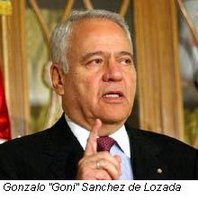Investor Behaviour and Imperfect Markets
 One of the courses that I'm taking this term (with the same title as above) explores cognitive limitations of human beings and how these can affect investing behaviour. The course is taught by Michael Schill and Ron Wilcox. We've performed some fascinating experiments 'live' in class that always have me nodding and thinking "yup - I do that too!".
One of the courses that I'm taking this term (with the same title as above) explores cognitive limitations of human beings and how these can affect investing behaviour. The course is taught by Michael Schill and Ron Wilcox. We've performed some fascinating experiments 'live' in class that always have me nodding and thinking "yup - I do that too!".For e.g. one of the things we talked about is Mental Accounting which is (apparently) a well-established area of research. We studied all kinds of interesting effects - like how people feel much happier if they win $5 once, $5 again and then $10 as a grand finale rather than winning $20 all at once.
A great example Prof. Wilcox gave was about those cheesy infomercials on late night TV that try to sell us a set of 6 "Ginsu-Knives" knives for $24.99. The presenter will first talk, at length, about how the knives (probably chepo imports) are the best thing since sliced bread and how they're really worth $5,000 but for a limited time only are being offered at a special price of 24.99. And then:
"But if you order in the next 20 minutes - we will include this magic wiper-duster-gizmo absolutely FREE!"
(and you're thinking, 'hey - this is cool. I get more stuff!')
"...and we will also include this looks-like-real-wood chopping board completely FREE!"
(now you're thinking - wow even more stuff!)
"...and last, but not least, we will also send you this booklet on 'How to cut onions without tears' by HoshiHoshi Kishimura absolutely FREE"
(...ok - you're reaching for the phone now)

In essence - studies show that once we're given the price (24.99) we've accounted for it and taken note of it as a negative experience we must undergo to buy the knives. But when we're shown each of the addional gains separately - it leads to an exaggerated belief about the attractiveness of the bargain. So for e.g. if the announcer had said all in one breath:
"Buy these knives, with a dusting cloth, fake wood block and paper pamphlet - for 24.99"
you'd probably think - 'this is crap'. But if they separate out the gains - it leads to the deal sounding more attractive.
It all appeared very credible & intuitive to me.
 It also reminded me of an interview I had seen once on TV. It was an interview of Gonzalo "Goni" Sanchez de Lozada, who is from Bolivia and had played a key role as finance minister in stopping hyperinflation in Bolivia in 1985. I reproduce part of his interview below (full interview text is available here):
It also reminded me of an interview I had seen once on TV. It was an interview of Gonzalo "Goni" Sanchez de Lozada, who is from Bolivia and had played a key role as finance minister in stopping hyperinflation in Bolivia in 1985. I reproduce part of his interview below (full interview text is available here):"Every two or three days I would take it to the president to show how we'd advanced, and get his criteria.
And he would direct us with a great deal of wisdom, saying, "Look, boys, you've got one chance, and remember, as Machiavelli said, 'It's all the bad news at once, and the good news little by little.'"

1 Comments:
Err....can you please repeat the question?
Post a Comment
<< Home